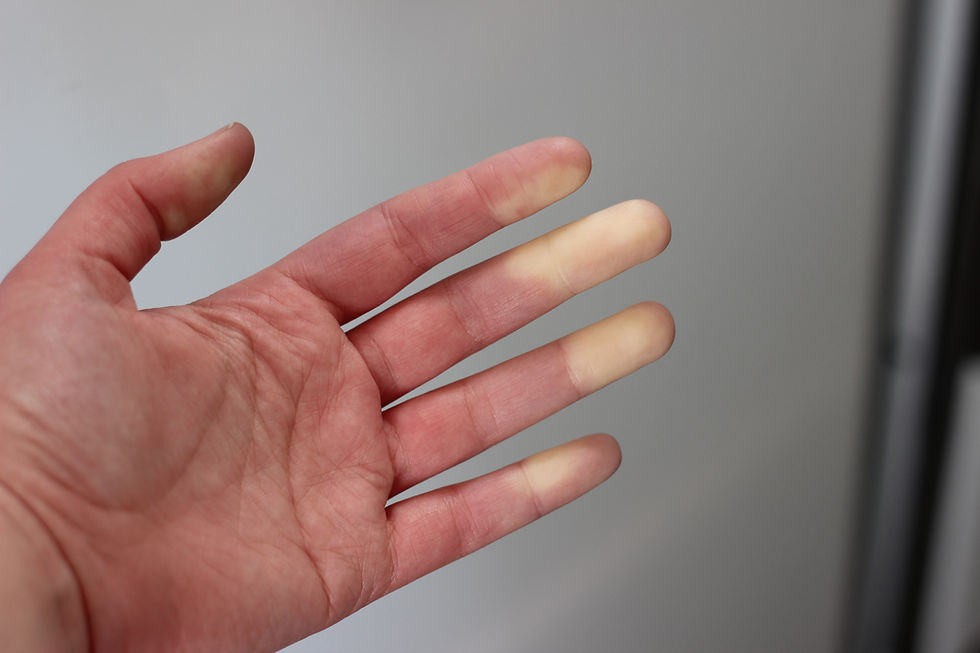RIDDOR and OH: Who’s responsible for reporting?
- Alice Monk

- Oct 24, 2025
- 2 min read
You may have heard the term RIDDOR before, but what does it mean in practice – and how does it connect with occupational health?
RIDDOR stands for the Reporting of Injuries, Diseases and Dangerous Occurrences Regulations. It’s the law that requires employers, the self-employed, and those in control of work premises to report certain serious workplace incidents.
Here’s what you need to know:
What needs to be reported:
Work-related accidents that cause death or specified injuries Examples: fractures (other than fingers, thumbs and toes), amputations, serious burns, loss of sight, or injuries leading to more than 7 days’ absence from work. (List not exhaustive.)
Diagnosed cases of certain industrial diseases Examples: carpal tunnel syndrome from regular use of vibrating tools, occupational asthma from exposure to substances at work, hand-arm vibration syndrome (HAVS), dermatitis caused by skin exposure to hazardous substances, or noise-induced hearing loss. (List not exhaustive.)
Dangerous occurrences (“near misses”) that could have caused serious harm
Examples: collapse of lifting equipment, accidental release of a hazardous substance, failure of pressure systems (like a boiler explosion), or an electrical short that could have caused a fire. (List not exhaustive.)

Who is responsible for reporting:
The legal duty to report always sits with the employer, not with occupational health providers.
As your OH provider, we may advise that something looks reportable, but we cannot submit the report on your behalf.
How to report:
Reports are submitted directly to the HSE via their online form: HSE RIDDOR reporting.
What happens after you make a report:
Your report goes directly to the Health and Safety Executive (HSE) or the local authority.
The HSE records it in their national database of work-related incidents.
They may follow up for more information or investigate if the incident is serious or highlights wider risks.
For most straightforward reports, no further action is taken - the report is simply logged for monitoring and learning purposes.
Why reporting matters:
It ensures you’re meeting your legal duties as an employer.
It helps regulators spot patterns, prevent future harm, and target guidance or inspections where they’re most needed.
It provides a record that can help protect your organisation if questions arise later.
Most importantly, accurate reporting supports safer, healthier workplaces across all industries.
For a quick overview of RIDDOR, the HSE has a handy step-by-step guide here:
If you’d like to talk about how occupational health fits into your wider health & safety responsibilities, just drop us a line – we’re happy to help.




Comments